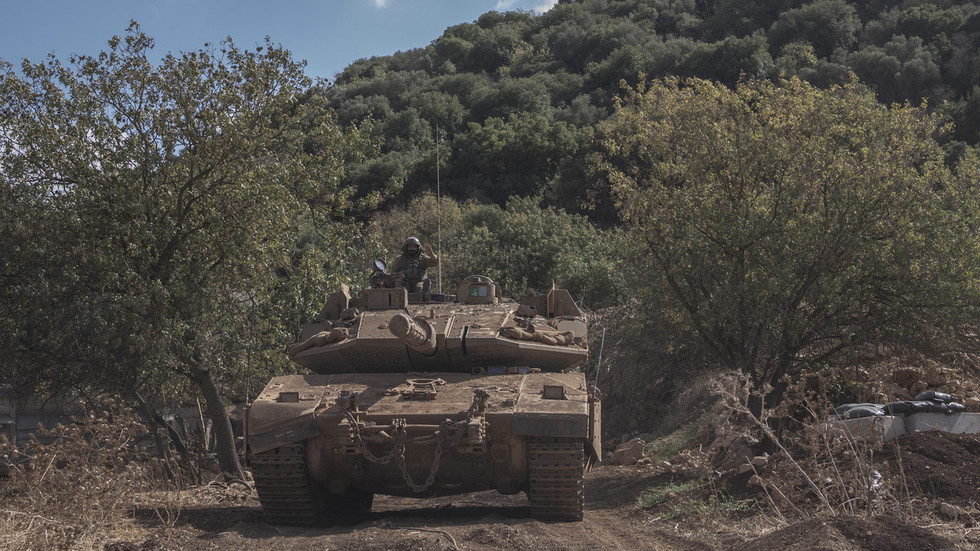The ongoing conflict in the region has brought about significant concern for Israeli hostages held by Hamas, especially following the incursion into Lebanon. Dadi Barnea, the head of the Israeli spy agency Mossad, has stressed that any potential ceasefire in Lebanon will be directly linked to Hamas’ release of Israeli captives. This stance was communicated to CIA Director William Burns, highlighting a strong negotiating position taken by Israel in discussions with the United States. Barnea’s belief is that Hezbollah, Iran, and various other regional actors can be instrumental in pressuring Hamas to comply with these demands. The urgency of this situation is underscored by the scale of hostilities that commenced with Hamas’s attack on Israel on October 7, which resulted in approximately 1,200 Israeli deaths and 250 individuals being taken hostage.
Since the beginning of this crisis, Hamas has intermittently released some captives, most notably during a week-long ceasefire in late November. The situation for hostages remains precarious, with reports indicating that 37 individuals have been confirmed dead, including victims mistakenly killed by Israeli military action. Israeli military operations have seen significant casualties on both sides, with the health ministry in Gaza reporting at least 42,010 casualties and over 97,000 injuries due to the ongoing airstrikes and ground offensives. Despite sporadic releases, discussions surrounding a ceasefire and a formal prisoner exchange have remained stagnant, with the Israeli public increasingly pressuring Prime Minister Benjamin Netanyahu to take more decisive actions to secure the safe return of hostages.
The Israeli and American governments are in agreement that initiating a ceasefire in Lebanon is not beneficial at this current juncture. They believe that military operations against Hezbollah must persist in order to exert maximum pressure within the region. Prime Minister Netanyahu has taken a proactive approach by addressing the Lebanese population directly, calling for liberation from Hezbollah’s influence to terminate hostilities and prevent Lebanon from descending into an even deeper conflict. He warned that continued struggles will lead to severe suffering similar to the humanitarian crisis unfolding in Gaza, which serves as a dire reminder of the war’s brutal impact on civilian populations.
In recent developments, Netanyahu participated in his first phone call with U.S. President Joe Biden in 50 days, where the focus shifted to Israel’s potential retaliation in response to an Iranian missile attack. This phone call not only underscored the importance of military strategies but also highlighted the need for a diplomatic solution that addresses the dire humanitarian situation faced by displaced Israeli and Lebanese citizens caught in the crossfire. Biden emphasized the necessity for diplomatic arrangements that could facilitate the safe return of these displaced individuals to their homes, suggesting a push by both leaders towards resolving the conflict through negotiations rather than prolonged military engagement.
The role of key regional players like Hezbollah and Iran is critical in navigating the complexities of the conflict, especially regarding the release of hostages. Barnea’s expectations for these groups to influence Hamas indicate a strategic approach to resolving the hostage situation, which is fraught with varying interests and political implications. Achieving a diplomatic resolution hinges not only on military might but also on effective dialogue with groups that hold significant sway over Hamas. The challenges presented by these negotiations are compounded by the historical and entrenched tensions within the region.
In conclusion, the conflicts involving Israel, Hezbollah, and Hamas demonstrate the intricate web of regional dynamics that complicate straightforward resolutions to humanitarian crises. As the death toll rises and public pressure mounts within Israel, the urgency for effective diplomatic engagement grows paramount. The international community is watching closely as developments unfold, emphasizing the critical need for balanced approaches that address both military and humanitarian concerns. The path forward remains tenuous, as the interplay of hostages’ fates, military objectives, and diplomatic negotiations will ultimately shape the region’s future.

